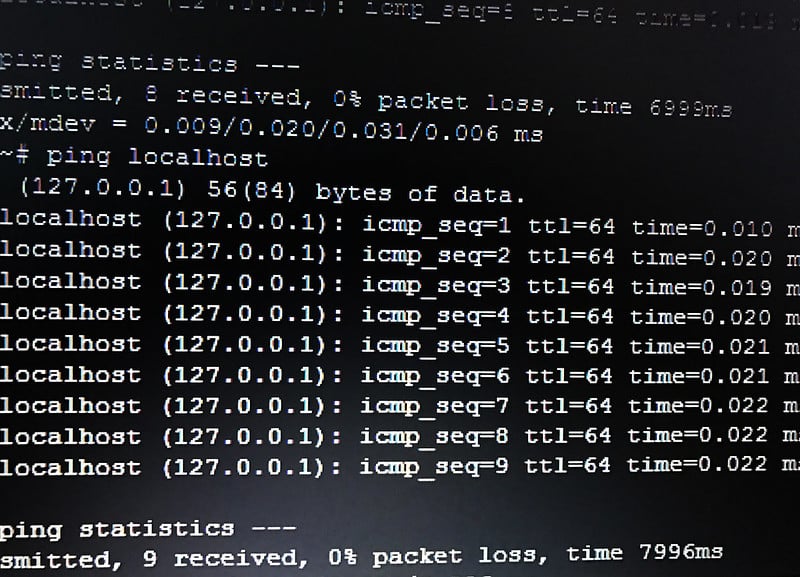Most enterprise IT runs on Windows. Microsoft’s familiar OS is an organizational mainstay for its familiarity and ease of use. But there’s another common operating system hiding in plain sight: Linux.
TrainACE - IT and Cybersecurity Training Blog
Is Linux+ Worth it in Washington, DC?
[fa icon="calendar'] Jan 2, 2020 3:13:00 PM / by Paul Ricketts posted in CompTIA, Linux+, Systems Administration, Network Administration, Operating Systems
Is MCSA Windows Server 2016 Worth It?
[fa icon="calendar'] Dec 4, 2019 2:47:05 PM / by Paul Ricketts posted in MCSA, Microsoft, Systems Administration, Network Administration
Microsoft remains an industry giant, dominating both the operating system (OS) and the business server solutions market worldwide. The result? IT professionals are well-served earning Microsoft certifications such as MCSA to both enhance day-to-day skills and increase their career earning potential.
Job Salaries with a MCSA Certification in the D.C. Area
[fa icon="calendar'] Nov 6, 2015 11:38:16 AM / by Ariana Ciancio posted in MCSA, Microsoft, Systems Administration, Network Administration
Linux Certified Professionals are in High Demand
[fa icon="calendar'] Jul 24, 2015 9:50:47 AM / by Ariana Ciancio posted in CompTIA, Linux+, Systems Administration, Network Administration, Operating Systems
When Linux first appeared on the market, it was barely understood. Now, it's one of the major players in networking, servers, smartphones, the web, and supercomputers, which means its grabbing demand from hiring managers.
A Day in the Life of an Linux Administrator
[fa icon="calendar'] Sep 4, 2014 10:42:02 AM / by Max Fonrose posted in CompTIA, Linux+, Systems Administration, Network Administration
Updated for 2022. Being a Linux systems administrator requires a wealth of different types of skills to complete the necessary daily tasks. In general, anyone looking to become a Linux administrator must have the skills and knowledge to design, implement and build within the software to manage a wide range of services, including assessing and eliminating threats within the Linux infrastructure and troubleshooting. This career path is both rewarding and lucrative, requiring high levels of skill to handle technical challenges and persistence to manage routine processes consistently.
Understanding the Role of Linux in Cybersecurity and Why It's so Critical
[fa icon="calendar'] Mar 24, 2014 9:28:11 AM / by Paul Ricketts posted in CompTIA, Cybersecurity, Linux+, Systems Administration, Network Administration
Updated Feb 2023.
Linux is a free, open-source operating system that has become increasingly popular in recent years. Used by many companies and organizations to power their networks and systems, Linux provides an excellent platform for secure computing, making it a great choice for those looking to improve their cybersecurity. This article, will discuss what Linux is, how it works, and how it can help with cybersecurity. We will also look at some of the security features that make Linux such a great choice for protecting your data from malicious actors.
Why CompTIA A+ and Network+ Certification Training is Beneficial
[fa icon="calendar'] Mar 27, 2013 12:59:54 PM / by Ryan Corey posted in CompTIA, Systems Administration, Network+, Getting Started in IT, Network Administration, A+
Are you a recent graduate looking to enter into the IT world or maybe you are somebody that is considering a career change into a more in demand field? Are you someone who can think logically as well as creatively? More and more technology employers in the D.C., Maryland and Virginia area are looking for candidates that possess solid computer abilities as well as industry certifications.
The Increased Role of Active Directory in the New MCSA Certification
[fa icon="calendar'] Feb 11, 2013 1:42:21 PM / by Ryan Corey posted in MCSA, Microsoft, Systems Administration, Network Administration
IT professionals preparing for the new MCSA certification will find a stronger emphasis on Active Directory. Microsoft Active Directory, or AD, is a database management system that can be replicated across logical network partitions called domains. The AD stores configuration information such as user login credentials and contains objects representing users, groups and computers. Administrators can group these objects into units according to business requirements and centrally manage them through group policy objects. They can also use AD to push software and desktop configuration updates to user systems. While AD has long been a central component of Windows Server, significant updates have expanded its role in the MCSA exams.
Microsoft Certification Restructuring; Bringing Back the MCSA and MCSE
[fa icon="calendar'] Apr 19, 2012 7:23:29 AM / by Ryan Corey posted in MCSA, MCSE, Microsoft, Systems Administration, Network Administration
The expanding role of cloud computing in the IT and software development fields has Microsoft sitting up and taking notice: the company announced recently that it will be reorganizing its Microsoft certification program to address the evolving impact of the cloud. In the process, the MCSA, MCSD and MCSE certification designations will also be returned to duty, with two small changes – the “A” will now stand for “associate” instead of “administrator,” and the “E” will now stand for “expert” rather than “engineer.”
Assessing the Most Common Information Technology Careers
[fa icon="calendar'] Jan 19, 2012 2:21:54 PM / by Ryan Corey posted in Cybersecurity, Systems Administration, Network Administration
If you're thinking about pursuing a career in the information technology field, it helps to have a basic goal in terms of the kind of work that you'd like to do. There is a wide array of job titles and roles within the IT industry, and it's easy to get confused when browsing through them. One way to narrow things down is by getting a clear understanding of the differences between the industry's most common careers: network administration, systems administration, IT security and information assurance. With a firm grasp of those basic roles, you should have an easier time choosing the right career path. Learn more about each of these common information technology careers below.






